Top-Rated Debt Collection Agency in Cameroon
Your trusted debt collection agency in Cameroon ensures swift, reliable, no-fee upfront recovery. Dig into our comprehensive guide for in-depth local debt collection know-how.






The ultimate guide about debt collection in Cameroon
Why you can trust this guide
At Debitura, we uphold the highest standards of impartiality and precision to bring you comprehensive guides on international debt collection. Our editorial team boasts over a decade of specialized experience in this domain.
Questions or feedback? Email us at contact@debitura.com — we update this guide based on your input.
Debitura By the Numbers:
- 10+ years focused on international debt collection
- 100+ local attorneys in our partner network
- $100M+ recovered for clients in the last 18 months
- 4.9/5 average rating from 621 reviews
Expert-led, locally validated
Written by Robin Tam (16 years in global B2B debt recovery). Every page is reviewed by top local attorneys to ensure legal accuracy and practical steps you can use.
Contributing local experts:
Last updated:
Explore the intricate world of Cameroon's debt collection with Debitura, your trusted partner. Lean on our local knowledge and global experience to tackle delayed payments efficiently. Prepare to conquer your debt recovery worries with this all-encompassing guide.
Navigating Key Roles in Cameroon's Debt Recovery Landscape
Grasping the dynamics of debt recovery in Cameroon necessitates a solid understanding of the unique roles and duties of key participants. From agencies and bailiffs to lawyers, each contributes significantly in the meticulously coordinated efforts to recover debts within the strict Cameroonian legal scope.
Debt Collection Agencies in Cameroon: Bridging Creditors and Debtors
In Cameroon, debt collection agencies play a pivotal role in the ecosystem of debt recovery, acting as intermediaries between creditors and delinquent debtors. Their primary function is to expedite the process of recovering unpaid debts through pre-legal measures such as communication and negotiation. By sending reminders, making phone calls, and employing other communication strategies, they strive to secure voluntary payment from the debtor, thus avoiding the need for legal proceedings. Governed by the OHADA (Organization for the Harmonization of Business Law in Africa) legal framework and specific national regulations like the Consumer Protection Law of December 24, 2019, these agencies are obligated to adhere to fair practices, ensuring debt recovery efforts are both ethical and effective. In scenarios where debts remain unresolved, they provide creditors with the guidance necessary to escalate the matter through judicial channels, adhering to the structured legal process outlined by the Uniform Act on Simplified Recovery Procedures and Enforcement Measures. However, their capabilities are limited to non-coercive measures, keeping the possibility of engaging legal procedures in reserve should the initial efforts prove unsuccessful.
Lawyers in Cameroon
In Cameroon, lawyers become indispensable particularly in complex debt collection cases that require judicial intervention. Their expertise is paramount in navigating the intricacies of legal proceedings, drafting and filing of legal documents, and representing the creditor in court. Lawyers step into the debt recovery process when a dispute necessitates a legal resolution or when the amount in question exceeds certain thresholds that require formal litigation. Their deep understanding of the legal landscape and specific regulations regarding debt recovery practices makes them invaluable for managing the judicial collection phase and ensuring that the creditor's rights are effectively upheld.
The Role of Bailiffs in Cameroon
In Cameroon, the judicial officer, known as a "Huissier de justice", serves a pivotal function in the realm of debt recovery. Tasked with the enforcement of court orders, these professionals are crucial in the post-judgment stages of debt collection. Before involving a bailiff, a creditor must first obtain a court order confirming the debt's certainty, liquidity, and due status. Once engaged, the bailiff can proceed with serving legal notices, initiating asset seizures, and other enforcement actions to ensure compliance from the debtor.
Bailiffs' duties encompass a broad range of activities including the serving of legal documents, seizure, and auction of assets, and the official recording of events or property state, providing critical evidence in legal proceedings. Integral to their role is their territorial jurisdiction, typically aligned with the court's district to which they are appointed. Their involvement represents the juncture at which persuasive efforts transition to compelling legal enforcement, emphasizing the seriousness and immediacy of the creditor's demand for repayment.
Understanding Cameroon's Debt Collection Legal Landscape
Navigating debt recovery in Cameroon ensues a deep comprehension of the intricate legal systems in play. Conforming to these rules not only assures efficient debt recovery, but also endorses fair and just processes, a pivotal factor in maintaining business integrity and trustworthiness.
The Regulatory Environment and Civil Court System in Cameroon
The civil court system in Cameroon is an integral part of the country’s judicial structure, designed to address various civil matters including debt recovery processes. This system is characterized by a hierarchical setup, ensuring that cases are handled at appropriate levels with the possibility of escalation for appeals.
- Traditional Courts and Courts of First Instance: At the base of the hierarchy, traditional courts alongside courts of first instance handle preliminary civil matters. These courts deal with the initial phases of disputes, including minor debt recovery cases and petty civil complaints.
- High Courts and Courts of Appeal: High Courts serve a dual role of hearing serious civil cases in the first instance and acting on appeals from lower courts. The Courts of Appeal further handle appeals from High Courts, ensuring a second level of scrutiny for civil matters, including debt recovery actions. Their decisions can significantly impact the outcome of debt collection efforts in Cameroon.
- Supreme Court and Constitutional Council: At the apex of the system, the Supreme Court oversees appeals on legal interpretations and application, offering a final avenue for challenging decisions made by lower courts. The Constitutional Council, though more focused on constitutional matters, plays a crucial role in ensuring that laws affecting debt collection and other civil actions align with the constitution.
This structured approach enables a thorough examination and resolution of civil matters, including debt recovery. The hierarchy ensures that all parties have multiple opportunities to present their case, aligning with principles of fairness and justice. Understanding this hierarchy is vital for successful navigation of the civil court system in Cameroon, especially for international creditors aiming to recover debts.
Key Legislation Impacting Debt Collection in Cameroon
In Cameroon, the landscape of debt collection is framed by a dynamic legal environment. Key legislation and regulations underscore the commitment to equitable, clear, and enforceable processes for recovering debts.
- OHADA Uniform Act on Debt Recovery and Procedures: Governs simplified recovery and enforcement mechanisms, facilitating injunctions to pay and provisional measures.
- Law N°2023/011: Specifically targets guarantees and debt recovery by public entities, emphasizing Treasury privileges, legal mortgages, and payment solidarity.
- Consumer Protection Law of 2019: Regulates credit activities, safeguarding against over-indebtedness, and setting clear guidelines for credit institutions in debt collection practices.
Together, these laws form the backbone of Cameroon's approach to debt collection, providing a balanced framework that protects the rights and interests of all parties involved. With a blend of traditional and modern legal instruments, Cameroon's legal system aims at making debt recovery more efficient and just.
Consumer Protection from Unfair Collection Practices in Cameroon
In the realm of debt collection in Cameroon, safeguarding consumer rights is paramount, with various regulations aiming to ensure fair practice and protect from undue hardship.
- The law of December 24, 2019, regulates credit activities, emphasizing consumer protection in credit transactions, ensuring suitability, and mandating clear information disclosures.
- It reinforces the right to withdrawal for consumers from credit contracts within a specified period, promoting transparency and fairness in financial dealings.
- Specific provisions address debt collection processes, with outlined steps for the amicable and judicial recovery of debts, emphasizing respectful and legal approaches.
- Penalties are established for non-repayment and cybercrimes affecting credit data, indicating a stern stance on fraudulent financial activities and protecting consumer information.
- The Consumer Protection Law of May 6, 2011, lays a broad framework for consumer rights in various sectors, underlining the importance of aligning with regional directives for comprehensive protection.
Cameroon's legislative framework places a strong emphasis on consumer protection within debt collection, ensuring practices that are not only legal but also ethical and considerate of consumer rights. This approach helps maintain a balance between effective debt recovery and safeguarding consumer welfare.
Amicable Debt Collection in Cameroon
In this section, we illuminate the process of amicable debt collection, also known as pre-legal collection, in Cameroon. We offer insights into beat strategies, key steps and critical considerations to successfully maneuver debt settlement without need for court involvement.
- Legal Framework: Governed by the AUPSRVE of OHADA, effective since July 10, 1998.
- Eligibility for Amicable Collection: Debts must be clear, in currency, have definite terms, and be overdue.
- Procedural Steps: Involves contacting the debtor, reminder letters, and negotiation before considering judicial recovery.
- Statute of Limitations: Two years for consumer debts and five years for professional debts to initiate collection actions.
- Processing Times and Costs: Generally faster and less costly than judicial proceedings, dependent on debt size and debtor's response.
- Fees and Interest Rates: Collection fees and statutory late payment interest rates are permissible, within regulatory limits.
- Necessity of Documentation: Thorough documentation is crucial for proving the debt’s validity and for any potential legal proceedings.
- Consumer Protection Considerations: Emphasis on protecting consumers from over-indebtedness and unfair collection practices.
- Transition to Judicial Recovery: An option if amicable efforts fail, but involves higher costs and longer timelines.
- Importance of Professional Assistance: Creditors benefit from professional help due to the process's legal and procedural complexities.
Navigating Amicable Debt Collection in Cameroon
In Cameroon, amicable debt collection is a vital, relationship-centric strategy aimed at resolving outstanding debts while preserving the commercial relationship. Underpinned by the principles of empathy and negotiation, this method positions itself as a non-confrontational path to debt recovery. It's particularly effective for non-disputed claims, providing a straightforward alternative to the potential complexities and expenses associated with legal proceedings.
Opting for an amicable approach from the outset is advisable, particularly when the claim is not contested or entangled in intricate legal disputes.
The Collection Agency's Role in Amicable Debt Recovery in Cameroon
In the landscape of Cameroon's debt recovery, collection agencies such as Debitura play a pivotal role. With ten years of experience in the Cameroonian market, we initiate the amicable collection process by precisely identifying the debtor and clarifying the outstanding debt. Following this, we engage the debtor through various communications, including reminders and formal notices. Our impartial standpoint, coupled with specialized expertise, often paves the way for successful resolutions, underlining the importance of professional mediation in the amicable debt recovery process.
Advantages of Amicable Debt Resolution
Choosing the path of amicable collection yields significant advantages for both creditor and debtor. For creditors, it presents a cost-effective alternative, sparing them from potentially high legal fees while preserving crucial business relationships through its respectful nature. Debtors, on the other hand, benefit from the possibility of negotiated, more lenient repayment terms, alleviating financial pressures and fostering goodwill toward the creditor. This method highlights the paramount importance of respect and understanding, establishing a conducive environment for meeting financial obligations.
Transitioning from Amicable to Legal Collection in Cameroon
Despite the numerous benefits that amicable collection brings, certain scenarios might necessitate a shift towards legal interventions. Indicators for such a transition include consistent non-engagement from the debtor, repeated failures to adhere to agreed payment plans, or intentional evasion attempts. Before taking the leap towards legal action – which can entail considerable costs and time – it is vital to exhaust all amicable avenues. Legal collection should be considered a last resort, embarked upon with thoughtful deliberation.
Amicable Debt Collection in Cameroon: Effective and Streamlined with Debitura
At Debitura, we offer a transparent and effective solution for international debt collection in Cameroon. Our no-success, no-fee policy ensures you receive value without any risk. Begin without any initial costs, and only commit to a success fee ranging from 7.5% to 30% upon successful recovery. Register for free, submit your claim, and obtain a personalized quote tailored to your needs. Discover more about our pricing here.
How It Works
Debitura simplifies amicable debt recovery in Cameroon into a process that typically spans 2-3 months:
- Sign Up for Free: Initiate the process without upfront costs. Create your account here.
- Upload Your Claim: Submit your claim details, review the success fee, and confirm to initiate the recovery process.
- Track Progress: Keep an eye on the recovery process in real-time through your Debitura dashboard.
- Consider Legal Action: Should the claim remain unresolved, we provide three quotes from local attorneys for potential legal action, empowering you to make informed decisions regarding the next steps.
Understanding Legal Debt Recovery in Cameroon
If amicable approaches fail to recover claims, the situation typically shifts to legal debt collection, a process requiring a court's ruling and engaging bailiffs. Legal guidance is usually helpful unless it's a minor claim. This section aims to shed light on the nuances of Cameroon's judicial debt collection process.
- Hierarchical Court System: The structure from traditional courts to the Constitutional Council determines case filing locations.
- Laws Governing Debt Recovery: Law N°2023/011 and the OHADA Act Uniform since 1998 are pivotal for debt recovery processes.
- Consumer Protection: The 2019 law focuses on transparency and fairness in banking and credit, affecting debt recovery approaches.
- Judicial Process Overview: Legal action for debt collection demands the debt be certain, liquid, due, and timely.
- Appropriate Court for Claims: Tribunal de Première Instance de Douala Bonanjo is a key court for debt recovery cases.
- Obtaining a Court Order: The process involves amicable attempts, legal filings, conditions for recovery, and final enforcement.
- Costs and Duration: Legal proceedings can vary in cost and timeline, influenced by case complexity and court workload.
- Legal Protections in Credit: Regulations offer consumer protections, impacting the strategies for debt recovery.
- Small Claims Procedures: Simplified procedures exist for smaller disputes, intended for efficient resolution.
- Collection Complexity: Navigating regulations, court procedures, and practical considerations are key to successful debt collection.
Shifting from Amicable to Judicial Debt Collection in Cameroon
The journey from amicable to judicial debt recovery in Cameroon involves crucial considerations due to the distinct methodologies employed in each approach. Amicable debt collection is the initial step, focusing on negotiations and mutual agreements between creditors and debtors to settle outstanding dues. However, when these efforts prove futile, mainly due to disputes or the debtor's refusal to engage, transitioning to a judicial method becomes imperative.
Engaging legal counsel or a specialized debt recovery agency like Debitura is pivotal in navigating the judicial recovery process. Expert representation not only ensures adherence to the complex procedural and legal frameworks but also significantly enhances the chances of debt enforcement success. This transition emphasizes the critical role of legal expertise in ensuring a structured and informed approach to debt recovery.
The Importance of a Formal Judgment in Cameroon
Obtaining a court order, or formal judgment, is a cornerstone of the judicial debt recovery process in Cameroon. This legal document, sanctioned by the court, officially mandates the debtor to fulfill their outstanding financial obligations to the creditor. The process to secure a court order involves initiating legal action against the debtor, provided the debt is certain, liquid, and due, and within prescribed time limits.
Enforcing a claim with a court order enables various coercive measures, including bailiffs' seizures of the debtor's assets. The efficacy of a court order lies in its ability to enforce payment through legally sanctioned means, thereby solidifying the creditor's position. Legal representation or employing the services of a recognized debt recovery agency can streamline the process of obtaining and enforcing a court order, ultimately increasing the likelihood of successful debt recovery.
Determining the Appropriate Court in Cameroon
The choice of court for handling debt recovery cases in Cameroon is guided by several factors, including the size, nature, and complexity of the claim. The Tribunal de Première Instance de Douala Bonanjo often deals with debt recovery cases. However, the hierarchical court system in Cameroon, starting from traditional courts to supreme courts, delineates their jurisdiction based on specific criteria.
For claims below a certain monetary threshold, small claims courts provide a simplified and expedited process. In contrast, more substantial or complex cases may be escalated to higher courts. The complexity of the case, the amount involved, and the parties' domiciles are pivotal in this determination. Understanding these jurisdictional nuances and selecting the appropriate court is critical for optimizing the legal strategy and achieving successful debt enforcement outcomes.
Small Claims Court in Cameroon
In Cameroon, the process of debt recovery, especially for small claims, typically falls under the jurisdiction of the Tribunal de Première Instance. This is particularly true in major cities like Douala, where the Tribunal de Première Instance de Douala Bonanjo regularly handles cases involving small claims. While the specific monetary limit for what constitutes a "small claim" in Cameroon might not be explicitly defined in the provided facts, the tribunal's practice shows it deals with a variety of cases, including those concerning financial disputes, unpaid debts, and other similar matters. The streamlined process for these cases is geared towards facilitating quicker resolutions compared to more complex legal disputes. Essential to note is the requirement for creditors to provide solid evidence supporting their claims, emphasizing the debt’s certainty, liquidity, and exigibility. This approach not only guarantees fairness in the adjudication of small claims but also ensures efficiency in the debt recovery process within Cameroon's judicial framework.
Ordinary Proceedings in Cameroon
In the Cameroonian legal landscape, ordinary proceedings serve as a primary recourse in more complex or higher-value debt collection cases, distinct from the streamlined processes of small claims court. These proceedings, regulated by the Act Uniform of OHADA and the 2023 legislation governing guarantees and debt recovery, are designed to handle a broader spectrum of disputes with no explicit monetary limit, thereby accommodating significant debt claims. One notable advantage over the small claims framework is the ability to address intricate legal issues and disputes, providing a more comprehensive judicial examination. This depth of scrutiny often results in a more equitable resolution for involved parties.
Legal representation is not just advisable but typically required in ordinary proceedings, ensuring that the complexities of the case are managed professionally. This requirement underscores the procedural and substantive rigor of ordinary proceedings. Lawyers play a crucial role in navigating the intricacies of case preparation, presentation, and negotiation, maximizing the chances of a favorable outcome. This legal support, combined with the broader and more detailed consideration of claims, makes ordinary proceedings a robust avenue for debt recovery in Cameroon, particularly when dealing with substantial amounts or complex legal issues.
Enforcing Debts Pursuant to Judicial Ruling in Cameroon
In the compelling realm of Cameroonian debt collection, sharpening your knowledge of the crucial phase of debt enforcement is vital. After winning the court order, this complex procedure, guided by official bailiffs, grants you the power to repossess the debtor's assets to satisfy your claim.
- OHADA Framework: Debt enforcement follows the OHADA framework, specifically through injunction to pay procedures.
- Role of Huissier de Justice: Essential in serving legal documents, executing court decisions, and managing public auctions.
- Certainty and Liquidity: For an injunction to pay, debt must be certain, liquid, and due.
- Legal Requirements: Documentation evidencing the debt is crucial for countering debtor's opposition.
- Strict Deadlines: Notification to debtor must be within three months, opposition within fifteen days of notification.
- Protective Measures: The creditor can request conservatory measures on debtor’s assets if recovery at risk.
- Regulatory Oversight: Cobac and specific decrees regulate judicial officers and debt collection practices.
- Consumer Protection: Regulations aim to combat credit non-repayment and over-indebtedness in credit activities.
- Garnishment Rights: Allow for the conversion of conservatory measures to attachment, with priority given to the seizing creditor.
Understanding the Key Players in Cameroon's Debt Enforcement
Judicial officers, known locally as "Huissiers de justice," are pivotal in the Cameroonian debt enforcement process. These legal professionals carry the weighty responsibility of serving legal documents, enforcing court judgments, and performing asset seizures. Their operational framework is strictly regulated, ensuring they uphold integrity, professionalism, and independence in their practice. This regulation encompasses qualifications, ongoing professional development, and adherence to a prescribed fee structure, making their role in debt recovery indispensable.
A Deep Dive into the Debt Enforcement Mechanism
In Cameroon, the debt enforcement journey commences with the creditor obtaining an enforceable title against the debtor. This legal document substantiates the debt claim and may originate from various sources including, but not limited to, court judgments and contractual agreements. Once secured, a "Huissier de justice" steps in to identify and seize debtor's assets, which might range from real estate to moveable assets, whilst taking care to safeguard the debtor's essential living needs as mandated by law.
Navigating the Legal and Financial Aspects of Debt Enforcement
Debt enforcement in Cameroon is governed by a robust legal framework structured on the principles of transparency, fairness, and the protection of parties' rights. This framework outlines the procedural steps, defines the scope of bailiff activities, and establishes a clear delineation of costs associated with debt recovery. These include but are not limited to court fees, bailiff charges, and legal representation fees. Creditors must weigh these costs against the potential recovery to assess the viability of pursuing enforcement actions.
Preparatory Steps Towards Effective Debt Enforcement
Prior to initiating enforcement proceedings, creditors in Cameroon are advised to ensure possession of an indisputable and legally recognized enforceable title. Once confirmed, engaging in a final attempt to amicably settle the debt with the debtor is not just a legal formality; it embodies the spirit of respect for the debtor's rights, offering them an opportunity to fulfill their obligations voluntarily. This pre-enforcement phase is a critical component of the debt collection process, poised to balance the interests of both creditors and debtors efficiently.
Deciphering the Insolvency Measures for Debt Retrieval in Cameroon
When debtors find themselves unable to meet financial requirements, insolvency occurs. Traditional recovery methods such as enforced asset seizure frequently prove futile due to lack of recoverable assets. Consequently, bankruptcy proceedings become a significant relief measure. These organised legal chokepoints aim to systematically liquidate the remaining assets of the insolvent, serving as a last-ditch strategy to procure any possible repayments for unsettled claims.
- Legal Framework: Governed by OHADA Uniform Act on collective proceedings for wiping off debts.
- Court Hierarchy: Insolvency cases can escalate from Courts of First Instance to the Supreme Court.
- Filing Requirements: Debtor insolvency is required for proceedings, permitting creditor initiation.
- Process Options: Include conciliation, preventive settlement, judicial recovery, and liquidation.
- Duration and Complexity: Insolvency proceedings in Cameroon typically last around three years.
- Costs: Legal action costs in debt collection cases are estimated at 5-10% of the total claim.
- Priority Rules: Secured debts have preference over unsecured ones in asset liquidation.
- Creditor Participation: Creditors may challenge bankruptcy decisions through legal processes.
- Protection Measures: Retention of Title clauses common, offering ownership protection until payment.
- Judicial Enforcement: The Treasury privilege grants preferential repayment rights to public entities.
The Framework of Insolvency Procedures in Cameroon
When a business in Cameroon faces financial turmoil to the extent that it cannot meet its financial obligations, insolvency procedures offer a structured approach for resolution. Governed by the Acte Uniforme OHADA, these rules dictate the process of either restructuring the debtor’s financial dealings or liquidation of assets to satisfy creditor demands. Insolvency proceedings can be initiated by either the debtor or the creditors when the debtor ceases to fulfill its financial commitments periodically. Conditions and procedures for this are outlined in both local Cameroonian law and the broader OHADA framework, making it imperative for involved parties to be well-versed with these regulations.
Creditor Rights and Claim Prioritization in Cameroon
During insolvency proceedings in Cameroon, claims from creditors are methodically categorized and prioritized. This hierarchy ranges from secured claims, backed by collateral, to unsecured claims, which do not have such security. The position of a creditor's claim significantly impacts the probability and extent of debt recovery. To ensure active participation, creditors are required to timely register their claims. Moreover, engaging in creditors' committees or endorsing reorganization plans might offer better prospects for recovering the amounts owed.
Understanding Costs and Timelines
The path through insolvency proceedings encompasses various costs, including court fees, administrative expenses, and potential charges for legal representation. These costs are typically settled from the debtor’s estate prior to any distribution amongst creditors. The timeline for insolvency cases in Cameroon is influenced by numerous factors such as the intricacy of the debtor's fiscal health, the number of creditor claims, and possible legal challenges. Creditors should brace themselves for a process that can considerably elongate the period expected for reclaiming debts.
Find a Local Debt Collection Lawyer
Need court-ready representation? Share your case once and receive up to three proposals from vetted litigation attorneys—free, fast, and with no commitment.
- Verified specialists
- Quotes in 24 h, no hidden fees
- Fair, pre-negotiated rates
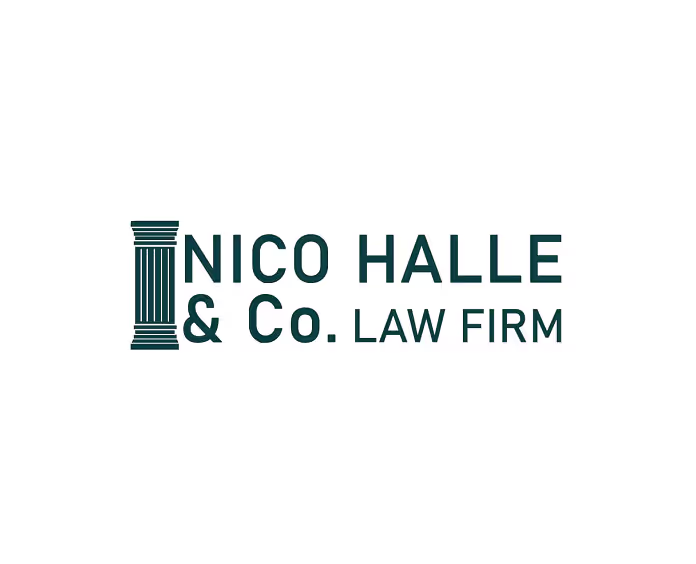
Nico Halle & Co. Law Firm is a premier law firm in Douala offering effective Debt Collection services in Cameroon, recognized as the go-to partner for debt recovery since 1985, with accolades like the PANAFES Excellence Award and memberships in the Cameroon Bar Association and International Trademark Association, serving OHADA member states and broader Sub-Saharan Africa.

Bongam and Youmbi Law Firm is a premier law firm in Douala offering effective Debt Collection services in Cameroon, established in 2012, with accolades such as the 2024 Legal Excellence Award and memberships in the European Lawyers’ Association and CEMAC.
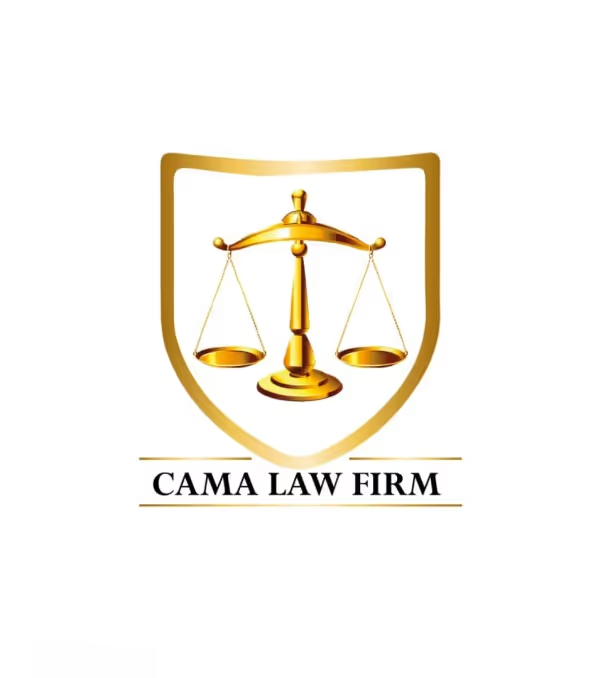
Cama Lawfirm is a premier law firm in Douala offering effective Debt Collection services in CM, positioning itself as the go-to partner for debt recovery with a founding year of 2018 and membership in the Ordre des Avocats du Cameroun.
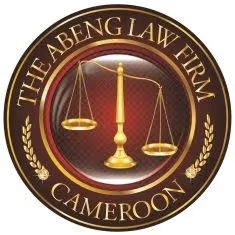
The Abeng Law Firm is a premier law firm in Douala offering effective Debt Collection services in Cameroon, positioning itself as the go-to partner for debt recovery with a foundation in 1998, bilingual expertise, and membership in global networks like TAGLaw.

Citadel Law is a premier law firm in Douala offering effective Debt Collection services in Cameroon, positioning itself as the go-to partner for debt recovery with a strong reputation since 2018 and recognized memberships and accolades.
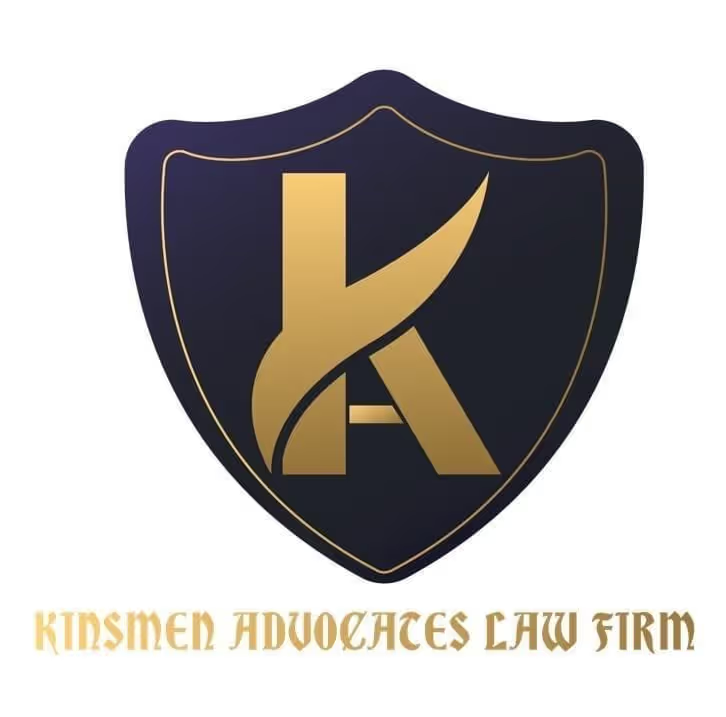
Kinsmen Advocates Law Firm is a premier law firm in Buea offering effective Debt Collection services in Cameroon, positioning itself as the go-to partner for debt recovery since 2012, with a strong reputation for professionalism and international client service.
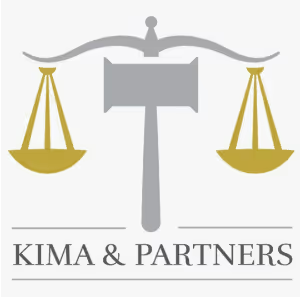
KIMA AND PARTNERS FIRM is a premier law firm in Buea offering effective Debt Collection services in Cameroon, established in 2020, recognized as the Most Innovative Corporate Law Firm, and awarded Best Corporate Transaction Services Provider in the region.

NTINGLET-AYUKTAKU LAW FIRM is a premier law firm in Douala offering effective Debt Collection services in Cameroon, established in 2011, renowned for its bilingual expertise and membership in the Cameroon Bar Association, ensuring trusted and efficient debt recovery solutions.

D.MOUKOURI AND PARTNERS is a premier law firm in Douala offering effective Debt Collection services in Cameroon, recognized for its expertise since 2013 and holding prestigious rankings from Chambers and Partners, The Legal500, and IFLR1000, serving Central Africa.
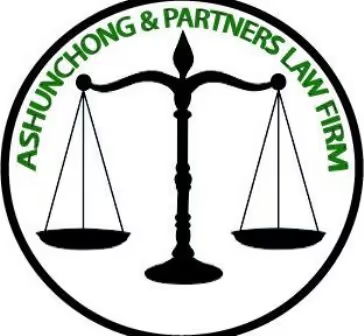
Ashunchong and Partners Law Firm is a premier law firm in Douala offering effective Debt Collection services in Cameroon, positioning the firm as the go-to partner for debt recovery with 13 years of experience and memberships in the International Chamber of Commerce and Cameroon Bar Association.
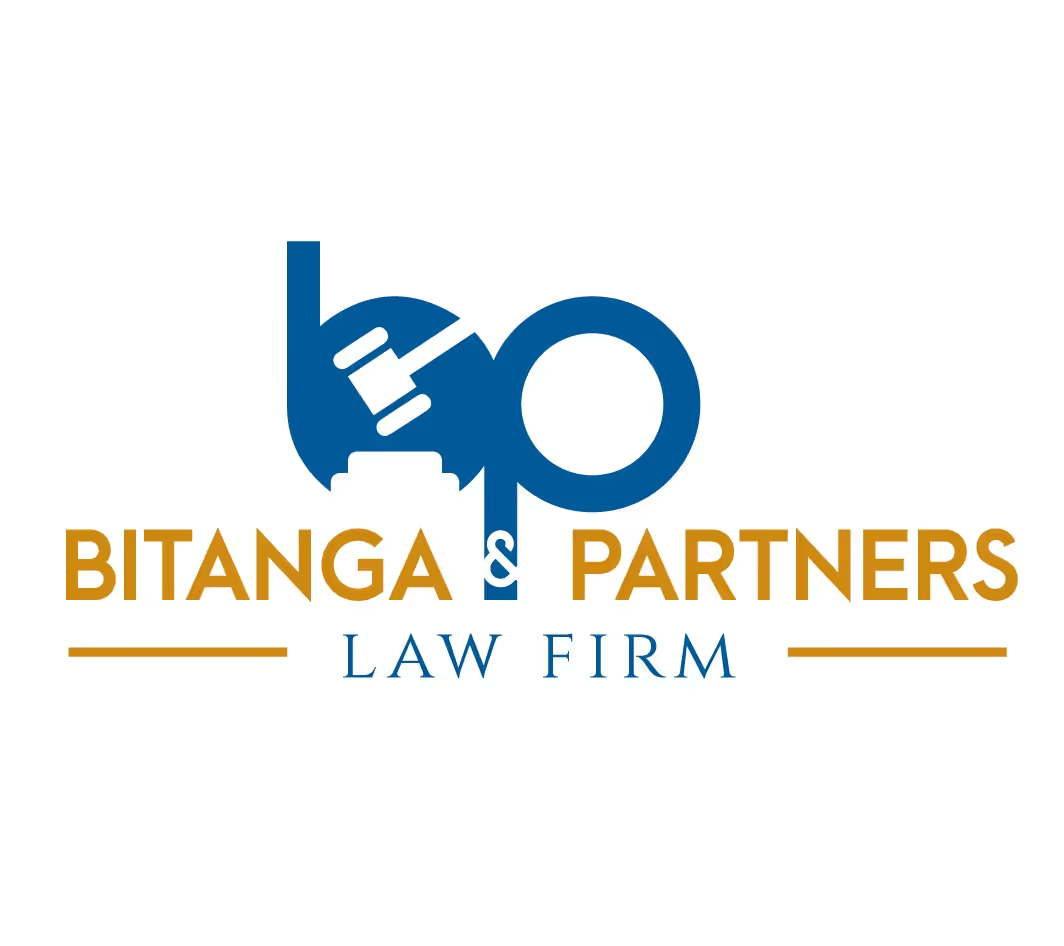
bitanga & partners lawfirm is a premier law firm in Douala offering effective Debt Collection services in Cameroon, recognized for its strategic counsel since 2020, boasting awards and memberships, and serving clients across OHADA member states and globally.
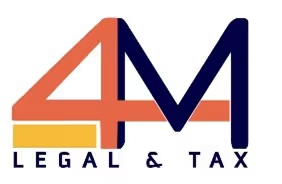
4M Legal and Tax is a premier law firm in Douala offering effective Debt Collection services in Cameroon, established in 2020 with a client-centric approach, recognized as the #1 Leading Law Firm in Cameroon, and a member of Legal Network International.





.svg)

.webp)
.png)

.png)
.svg)












.svg)

